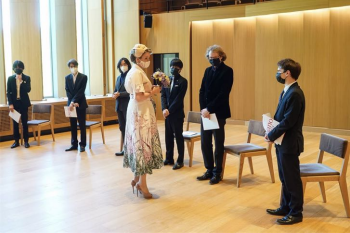One of the most demanding and widely publicised international competitions, the Queen Elisabeth Competition (Concours Reine Elisabeth), created in 1937, has established itself as a springboard for young violinists, pianists, singers, and cellists on the threshold of an international career. The Competition aims to serve as an intermediary between those young virtuosos and the world’s great musical venues.
Steadfastly committed to the project initiated by Eugène Ysaÿe and Queen Elisabeth, the Queen Elisabeth Competition seeks to discover complete artists; it owes its reputation to a prestigious jury, strict rules, and unparalleled media coverage, as well as to the friendly and enthusiastic hospitality offered by an entire country and its Royal Family.
Nicolas Dernoncourt, Secretary General of the Queen Elisabeth Competition, will present the organisation from the point of view of what makes the event so unique.
Nicolas Dernoncourt is a self-taught musician and composer. He obtained a Master degree in Art History, Archaeology and Musicology at the University of Louvain in 1997. After working occasionally for Les Halles de Schaerbeek and Ars Musica, he joined the team of the Queen Elisabeth Competition in 1998. In 2000, he was appointed artistic coordinator and took charge of all the artistic matters for the competition, as well as all that concerns new technologies. In 2002, he joined the Executive Committee and took on the role of Secretary of the jury. Since 2018, he has been Secretary General of the Queen Elisabeth Competition.
Nicolas has participated in reflection groups about the digitizing and referencing of classical music, and has been administrator of various organisations, among which the orchestras La Jeune Philharmonie and the Muffatti. He is also a founding member of 'Tactus' Young Composers' Forum. As a musician, he has composed music for the theatre, and he has played with various ensembles or bands with which he has toured and recorded.
Note: Content and images not intended for copyright infringement.


